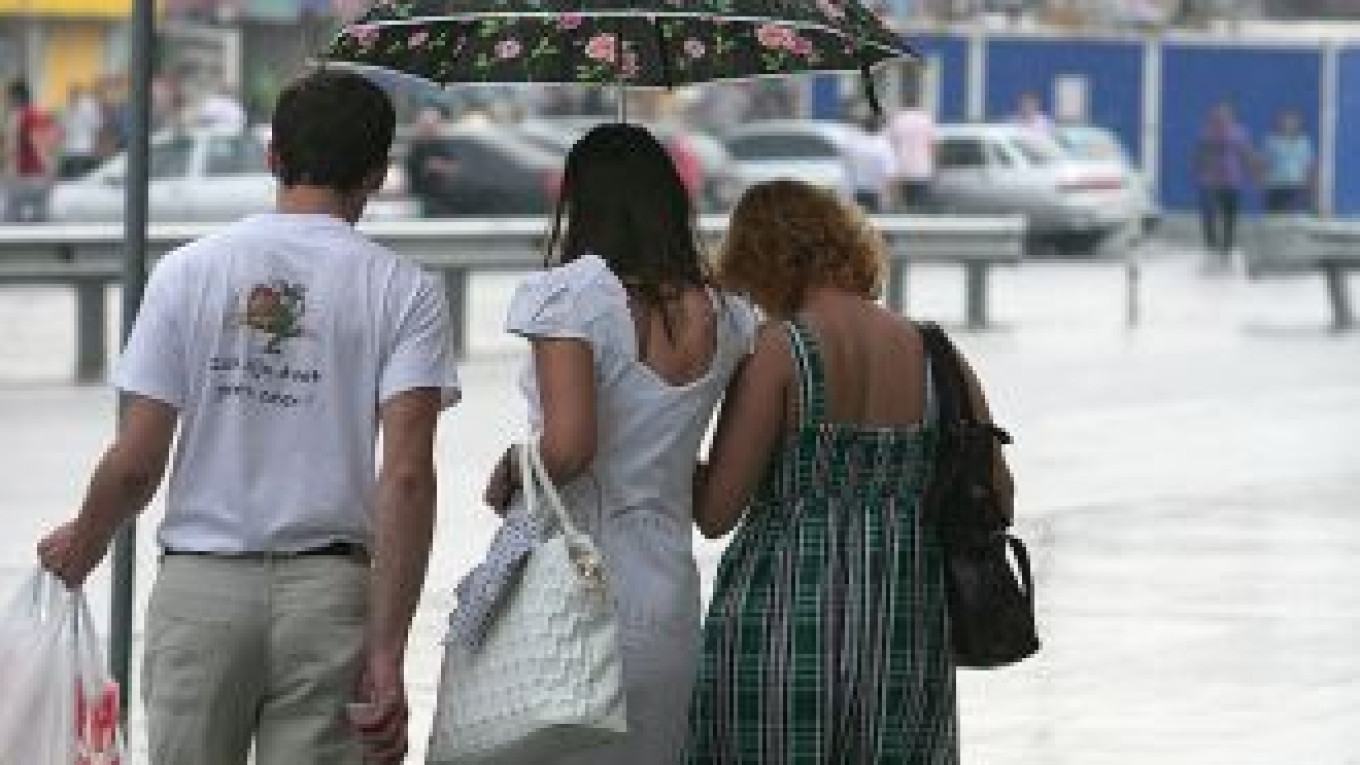Sowing of winter grain crops in a number of regions has been delayed as the two-month drought and heat wave dried out the soil, the Russian Grain Union said Friday.
Russia needs more rain for the soil to be ready for sowing, as precipitation brought by the cold front that arrived Thursday did not significantly improve the situation, Alexander Korbut, the union's vice president, said in an interview.
"It's time to start now. Sowing in some regions should have been in full swing already," he told The Moscow Times, adding that all regions except for Siberia, where sowing of winter crops starts later, needed abundant rainfalls to ready the soil.
Most of the 18 regions of the Central Federal District, including the Tver, Ivanovo, Vladimir and Bryansk regions, received 17 millimeters to 46 millimeters of rain on Thursday, the Federal Meteorological Service said Friday.
The Tver and Ivanovo regions received the heaviest rain, with about 33 millimeters and 46 millimeters, respectively, the center said on its web site.
Four of the 14 regions in the Volga Federal District received 20 millimeters to 33 millimeters of rain Thursday night, while the Krasnodar region — in the Southern Federal District — got 65 millimeters.
"The rain we have received is still insufficient. We need more rain, which we haven't had for more than two months," said Dmitry Rylko, director of the Institute for Agricultural Market Studies.
"Unfortunately, not all the regions have gotten rain. The situation has improved only in some of the regions, but not in the key ones. We hope that it starts raining in the Central Black Earth region and the Volga region," he told The Moscow Times, adding that a total of 20 millimeters to 25 millimeters of precipitation was needed to aid sowing of winter grain crops.
There is “little hope” of heavy rains in the Black Earth regions of central Russia until Monday, Anna Strashnaya, head of agro-meteorological forecasts at the Federal Meteorological Service, told Bloomberg on Friday.
A number of regions, including those in the Central and Volga federal districts, had to delay sowing of winter crops for at least five days, although these regions are not of key importance, Rylko said.
Sowing of winter grain crops usually starts Aug. 15 in the northern regions, with southern Russia planting slightly later.
The Federal Meteorological Service forecasts heavy rain in most of Russia through the end of August, although the rates of precipitation will remain below the norm in some regions, including the Samara and Volgograd regions.
A Message from The Moscow Times:
Dear readers,
We are facing unprecedented challenges. Russia's Prosecutor General's Office has designated The Moscow Times as an "undesirable" organization, criminalizing our work and putting our staff at risk of prosecution. This follows our earlier unjust labeling as a "foreign agent."
These actions are direct attempts to silence independent journalism in Russia. The authorities claim our work "discredits the decisions of the Russian leadership." We see things differently: we strive to provide accurate, unbiased reporting on Russia.
We, the journalists of The Moscow Times, refuse to be silenced. But to continue our work, we need your help.
Your support, no matter how small, makes a world of difference. If you can, please support us monthly starting from just $2. It's quick to set up, and every contribution makes a significant impact.
By supporting The Moscow Times, you're defending open, independent journalism in the face of repression. Thank you for standing with us.
Remind me later.


